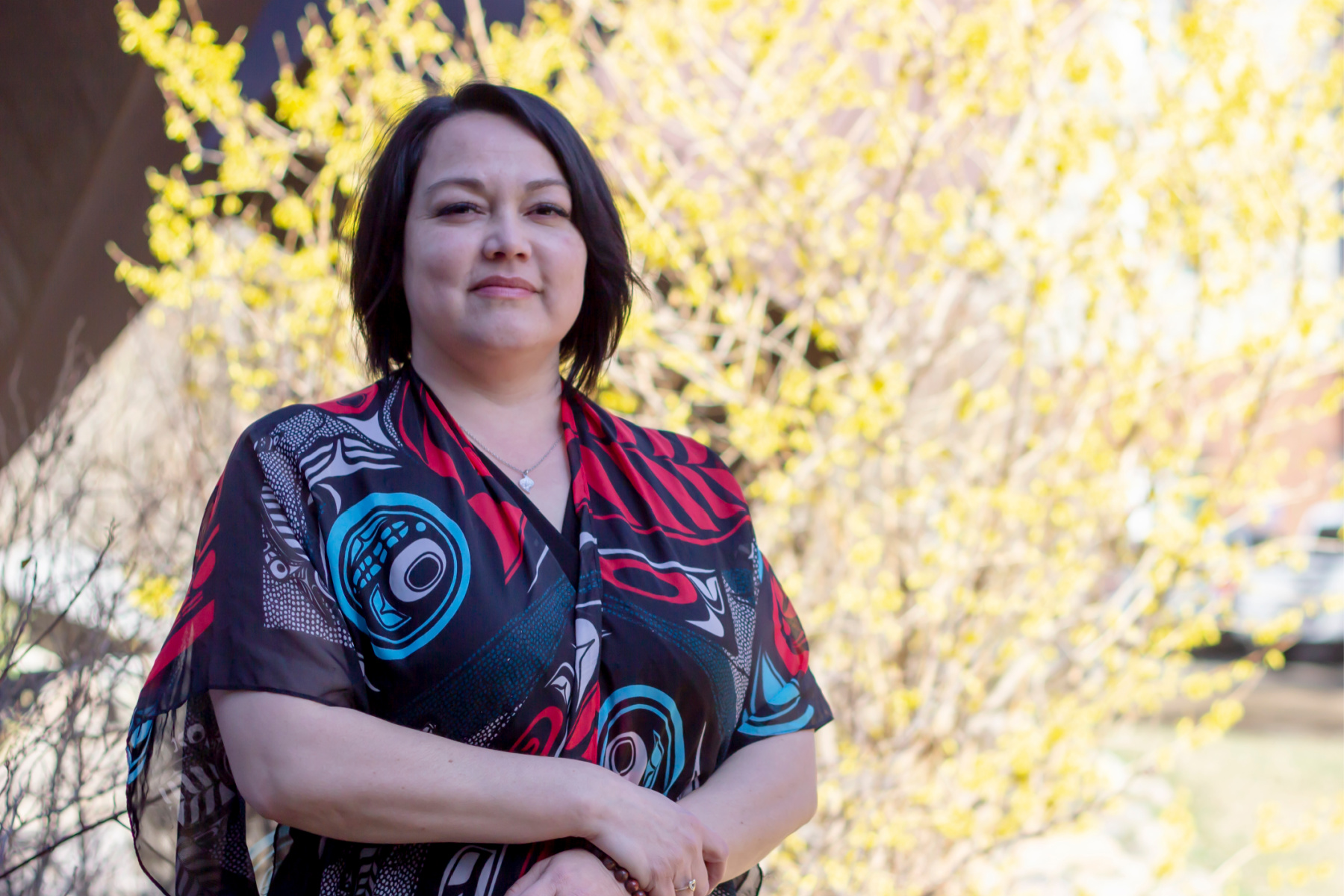Transforming how teachers bring Indigenous knowledge into the classroom
Carmen Rojas - 8 May 2023

In recent years, as Canada has begun to confront its colonial history and take steps towards reconciliation, educators have responded by adjusting school curricula to include more Indigenous content.
The updated Teaching Quality Standards (TQS) released by Alberta Education in 2019, for example, require teachers across the province to integrate foundational First Nations, Métis, and Inuit knowledge into the classroom.
For Professor Dwayne Donald, the Canada Research Chair in Re-imagining Teacher Education with Indigenous Wisdom Traditions, this has given new motivation to his work studying curriculum and pedagogy – particularly when it comes to filling the gap that he sees in how educators are currently taught.
“Faculties of education have responded with introductory Indigenous content courses, but there’s nothing formal in terms of follow-up, especially for me with how to offer direct guidance on teaching and learning inspired by Indigenous insights,” he says.
“If addressing foundational knowledge is now a requirement for all teachers — at all grade levels and all subject areas — then we have a responsibility to try to support them so they can actually do that,” he adds.
Beyond the need to meet the mandate outlined by TQS #5, many educators are passionate about deepening their understanding and learning how to support the next generation of students.
“For me personally, as a Cree/Métis woman, this is hugely important,“ says professor of elementary education Trudy Cardinal. “If we take a look in today’s society at the well-being of teachers, children, and, in particular, Indigenous youth and families, all of the things we bring forward as beautiful wisdom and ways of being, knowing, and doing will benefit everyone in those spaces.”
Personal and professional growth
The idea for a program aimed at in-service teachers and school leaders interested in deepening their understanding of Indigenous knowledge and ways of knowing connected to TQS #5 was born out of conversations Donald and Cardinal had with colleagues. In 2021, the Faculty launched the Summer Institute in Teaching Foundational Indigenous Knowledge.
“We see people in a holistic way, so we wanted to create a program that would impact teachers personally and professionally,” says Cardinal. “The idea was to have an immersive experience that really moved some of the ideas in their head — things they might be learning about intellectually through professional development or reading — to their heart and their whole body.”
The Institute runs in July and early August and consists of the four courses that make up the Graduate Certificate in Educational Studies (GCES) - Indigenous Education — a program that can also ladder into a master’s degree.
Joining Donald and Cardinal will be U of A colleague Dr. Melissa Tremblay and Dr. Sharla Mskokii Peltier from Lakehead University. Together, they will deliver courses covering topics of curriculum and pedagogy, the health and well-being of Indigenous students, land teachings, and literacy experiences.
New ways of learning
In Donald’s course, he focuses on giving students a beginning framework for foundational knowledge. This includes addressing what he calls “colonial logic” where knowledge is mostly equated with information, as well as discussing themes related to treaties, stories, and sacred ecology. Much of the class time is spent outside in the River Valley.
“My intention is to inspire them more than anything else,” he says. “It’s very much geared towards trying to support them as much as I can to think about these things in practical ways, in the sense of ‘what are you going to do when you get back to your classroom?’ ”
In Cardinal’s course on literacy learning, she tries to breathe life back into an area she feels has been “flattened” by the way it is currently being taught in schools.
“I wanted to design something that would transform practicing teachers’ understanding of how to engage with literacy experiences,” she explains. “When we rethink literacy with Indigenous ways of being, knowing and doing, we honour story as the teacher — as more than just a thing to take apart.”
In the past, Cardinal has tried to move teachers out of their comfort zone through activities such as beading moccasins — immersing them in an experience where many of them initially wanted step-by-step instructions but instead had to learn to explore.
“They could see that literacy was alive in that moment in ways that we might have forgotten about,” she says.
Planting seeds of hope
Donald and Cardinal note that in past years the Summer Institute has drawn a mix of educators, Indigenous and non-Indigenous, and both leaders in Indigenous education for their school or district and beginners who see these courses as a starting point to develop professionally.
“We may not in the next year or two be able to change the whole system, but what we’re sharing with them, it plants little seeds of hope for those passionate teachers and educators who want to do this for the next generations of children and youth,” says Cardinal.
“It will help them individually, it will help them as an educator, it will help them dream forward for school systems,” she adds. “As we all shift to this way of being that’s collective and relational and alive, and that honours human beings, I think we’ll all be better for it.”
The Open Studies application deadline for the Summer Institute is June 15, 2023. For more information, visit their website.
Feature image: Professor of elementary education Trudy Cardinal is one of the instructors for the Summer Institute in Teaching Foundational Indigenous Knowledge (photo: Laura Sou).